The shame of Japan: "comfort stations" in the war, where women were forcibly abducted
By Pictolic https://pictolic.com/article/the-shame-of-japan-comfort-stations-in-the-war-where-women-were-forcibly-abducted.htmlIn brothels for Japanese soldiers during the war, according to various sources, there were from 200 to 400 thousand women from China, Korea and other countries. Many survivors chose never to remember what happened to them. Moreover, the tragedy was talked about not so long ago, in the early 80s, when many of the injured women were no longer alive.
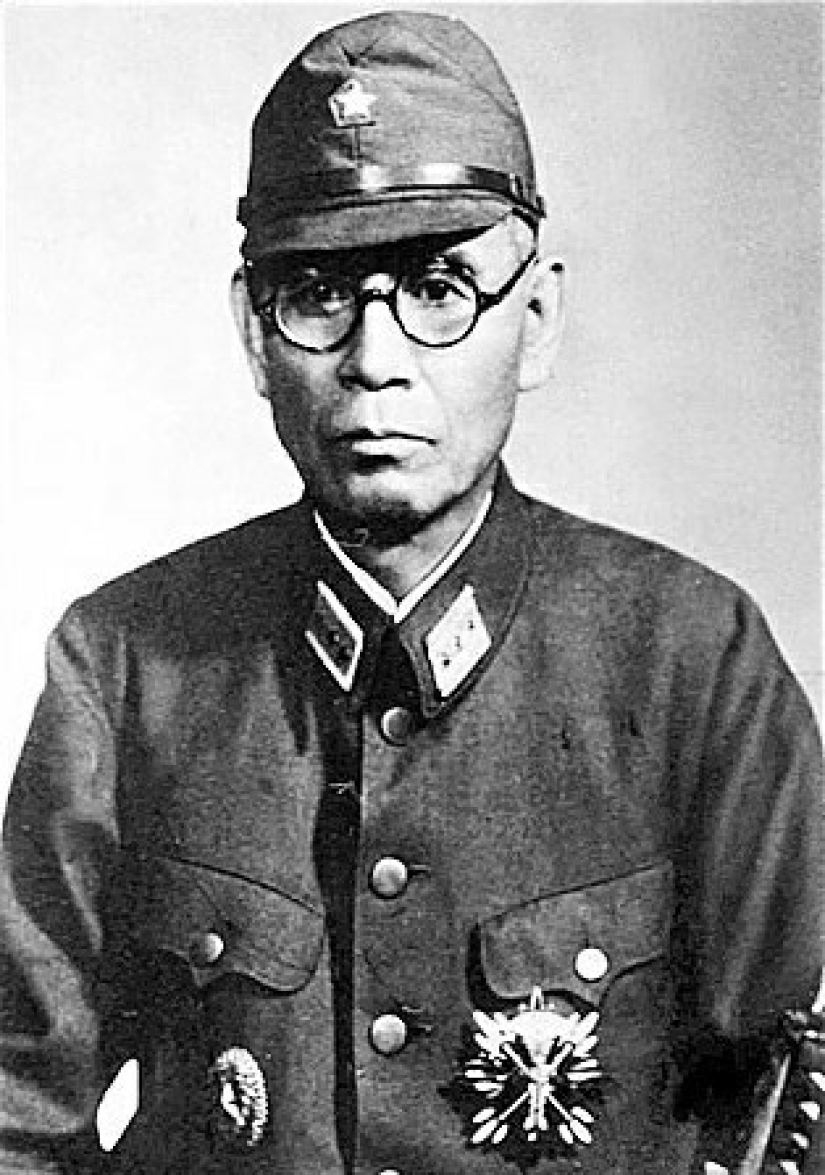
"Comfort stations", otherwise known as field brothels, began to open back in the 30s. In 1932, Lieutenant General Yasuji Okamura asked the command to organize brothels for the army. He motivated his proposal by the fact that Japanese soldiers rape women and become infected with venereal diseases from them. In addition, the local population is beginning to show anti-Japanese sentiments.
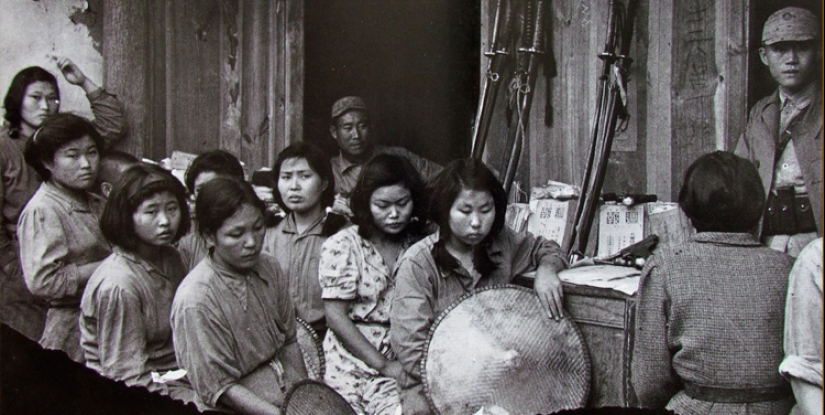
The first "station" was opened in Shanghai. At first, Japanese women who arrived voluntarily worked there. But with the increasing popularity of such institutions, prisoners from Filipino and Indonesian camps began to be brought there, as well as local people were recruited. The ads promised "jobs for girls," and many Korean and Chinese women responded to these calls. They were offered to become "nurses of a special type" for decent money.
After the capture of Nanjing (China) during the Sino-Japanese War in December 1937, mass murders and rapes began in the city. Despite the order prohibiting violence, the military command turned a blind eye to the atrocities of both ordinary soldiers and officers. Rape of women was considered as normal behavior in the occupied territories. Moreover, brothels began to be organized to control the process, which began to be called "comfort stations". Such a house of tolerance near Nanjing was opened in 1938. Later, more than 40 similar "stations" were opened in Nanjing.
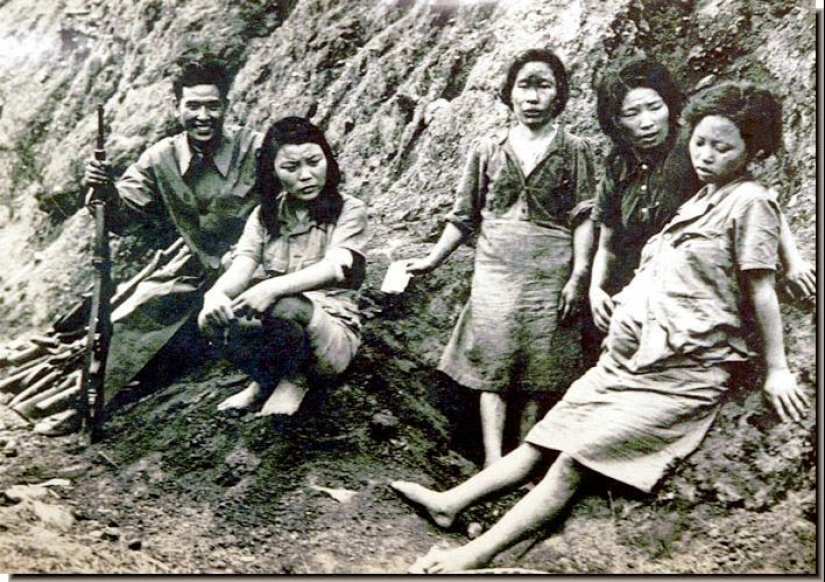
According to various estimates, from 50 to 300 thousand young women, many of whom were under the age of eighteen, passed through the "comfort stations". Only a fourth of them survived to the end of the war, because the living conditions were terrible. Women served 20-30 soldiers a day.
"It doesn't matter if it was morning or afternoon — one soldier went out, another immediately entered. We tried to dissuade each other from suicide, but there were still cases. Some stole opium from soldiers and took it in large quantities, dying from an overdose. Others took unfamiliar medications in packs, hoping that it would end their lives. Still others hung themselves on their clothes in the toilet," recalled the former "comfort woman" Park Kum Ju.
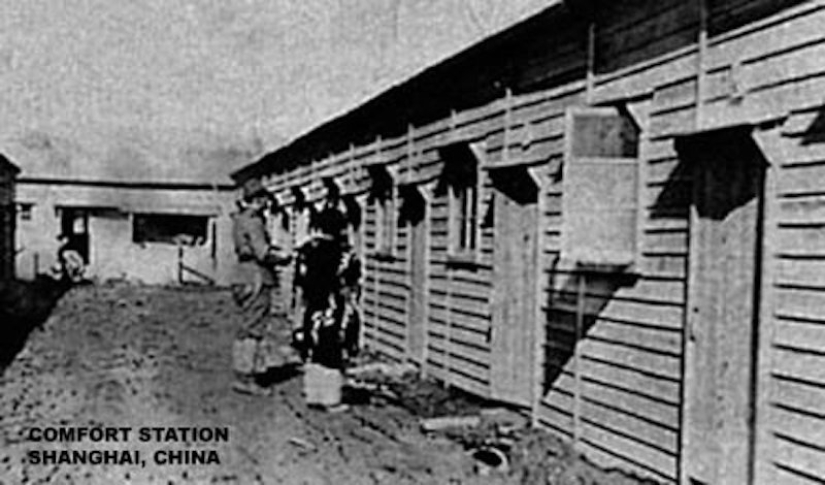
Initially, women volunteers from Japan were selected for work, but over time the number of stations increased. This led to the fact that women began to be brought from Korea, China, Taiwan and forced to work there. In total, women from 17 countries worked at the "comfort stations".
Since Korea was a Japanese colony from 1910 to 1945, and its inhabitants were forced to learn Japanese, women from Korea, because it was easier to communicate with them compared to women of other nationalities. Therefore, a huge number of Korean women (according to some estimates, about 200 thousand) were forcibly taken to these institutions.
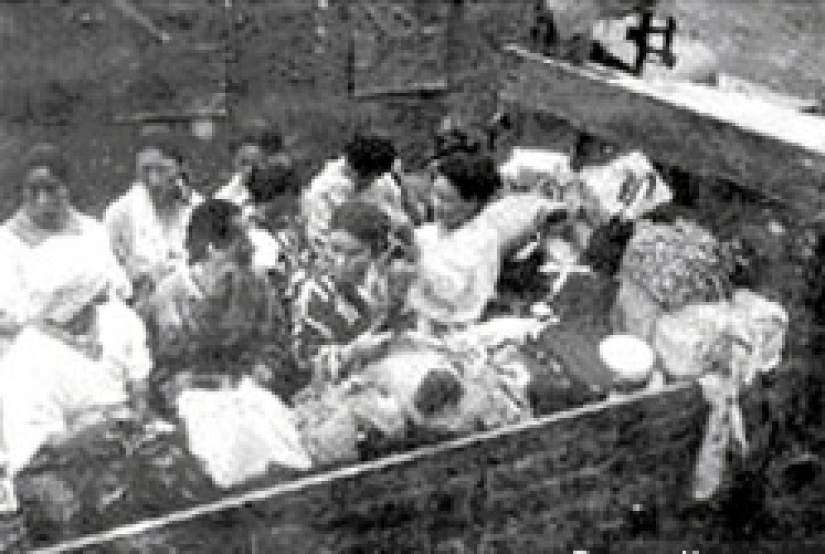
Every week, women underwent a medical examination for sexually transmitted diseases. There have been cases when healthy women were raped by military doctors. In case of infection, they were injected with "drug 606" — a drug for syphilis created by chemist Paul Ehrlich, who in 1906 began fighting the disease and tried 605 different organic arsenic compounds, until in 1907 they received "Ehrlichschen Präparat 606", the 606th drug in a row.
Pregnant women were also injected with this drug in order to provoke a miscarriage. The drug had an undesirable side effect, which subsequently excluded the possibility of giving birth to healthy children or even led to infertility.
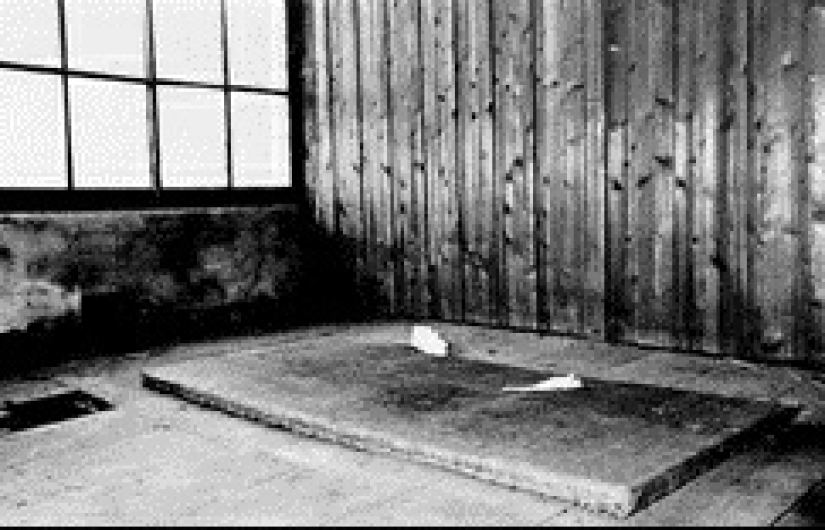
The number of "comfort stations" grew, they covered the entire territory of the Japanese Empire. On September 3, 1942, a message at a meeting of the heads of the Ministry of the Army indicated that there were 100 "comfort stations" in Northern China, 140 in Central China, 40 in Southern China, 100 in Southeast Asia, 10 in the Southern Seas, 10 on Sakhalin. There were 400 "comfort stations" in total.
However, with the advent of such institutions, cases of rape of local women did not stop, because soldiers had to be paid for each visit.
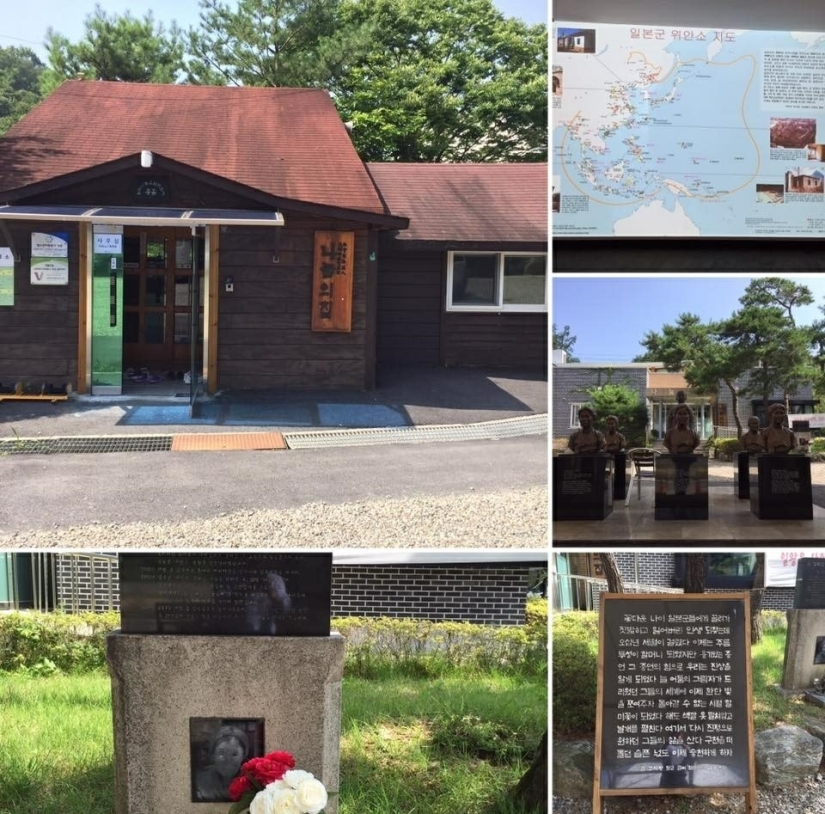
Since women brought up in Confucian philosophy who were sexually abused often committed suicide, and the survivors hid their shame, after the war it was not easy to determine the location of the "comfort stations", many have not been found to this day.
According to Japanese data, the number of "comfort women" was about 20 thousand and, as a rule, their stay at the "stations" was voluntary. Chinese historians point to the facts of abduction and forcible coercion of girls into prostitution, and the number of such women, according to their data, reaches 410 thousand.

In memory of the atrocities that were committed at the "consolation stations" during the Second World War, a House in Sharin was built in Mapogu, one of the districts of Seoul, in 1992. In December 1995, it was moved to its current location in Gyeonggi-do. The complex has two houses for living, one building is used as a temple.
In order to draw public attention to the problem of "comfort women", a historical museum was created at the House in Sharina, which contains official documents, old photographs and testimonies of several surviving women. There are also paintings created as part of art therapy, which women living in the house are engaged in. Also in the museum there is an exact copy of the "comfort station", where women lived. The Museum publishes and distributes information booklets using documents, photographs and other data stored in the archive.
Every year the museum attracts a small but constant flow of visitors from around the world. The main goal of the museum is to prevent the repetition of all the horrors of war and to convey to posterity information about the events that happened to women in Asia during World War II.
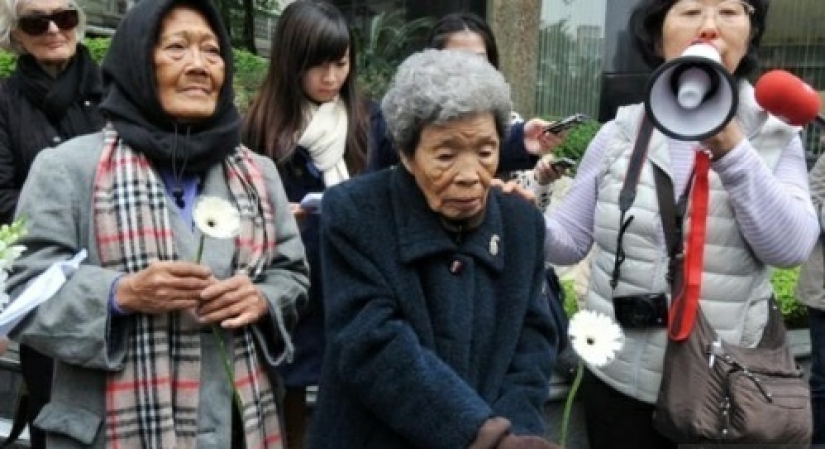
The war ended on August 15, 1945. Japan surrendered unconditionally, but the sufferings of women who were forced to work in "comfort homes" did not end there. Every Wednesday they participate in a weekly protest in front of the Japanese Embassy in Seoul, the author of which is the "Korean Council for Women Called into Military Sexual Slavery in Japan", to tell the public about the brutal treatment of Korean women by the Japanese military, as well as to put pressure on the Japanese government to receive an official apology.
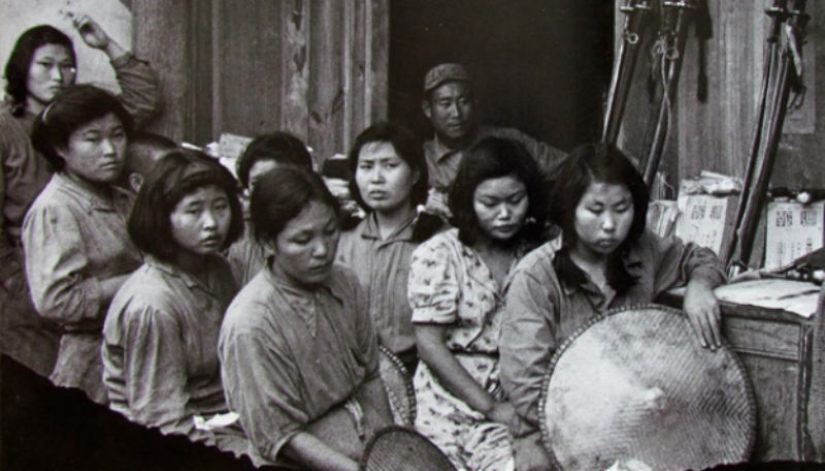
The mayor of Osaka, Toru Hashimoto, spoke out in defense of the brothels of that time. He explained that they were necessary in order to "maintain discipline" and give the military, who risked their lives, some respite. However, Hashimoto admitted that the women were not volunteers.
Such statements were sharply condemned by the Minister for Administrative Reform, Tomomi Inada. "The comfort women system was a grave violation of human rights," she said. Nevertheless, on December 28, 2015, the Japanese Government acknowledged its responsibility for the sexual exploitation of women during World War II and announced its readiness to pay compensation to victims.
Recent articles

Do you like to cook, buy food for the future, but the short life of vegetables and fruits does not give you peace of mind? There is ...

Ideally, veganism involves not only the rejection of eating animal products. It is a way of life where there are products which ...

Charlie Chaplin is known throughout the world; his career as a silent film actor lasted 75 years, ending with his death. Chaplin ...